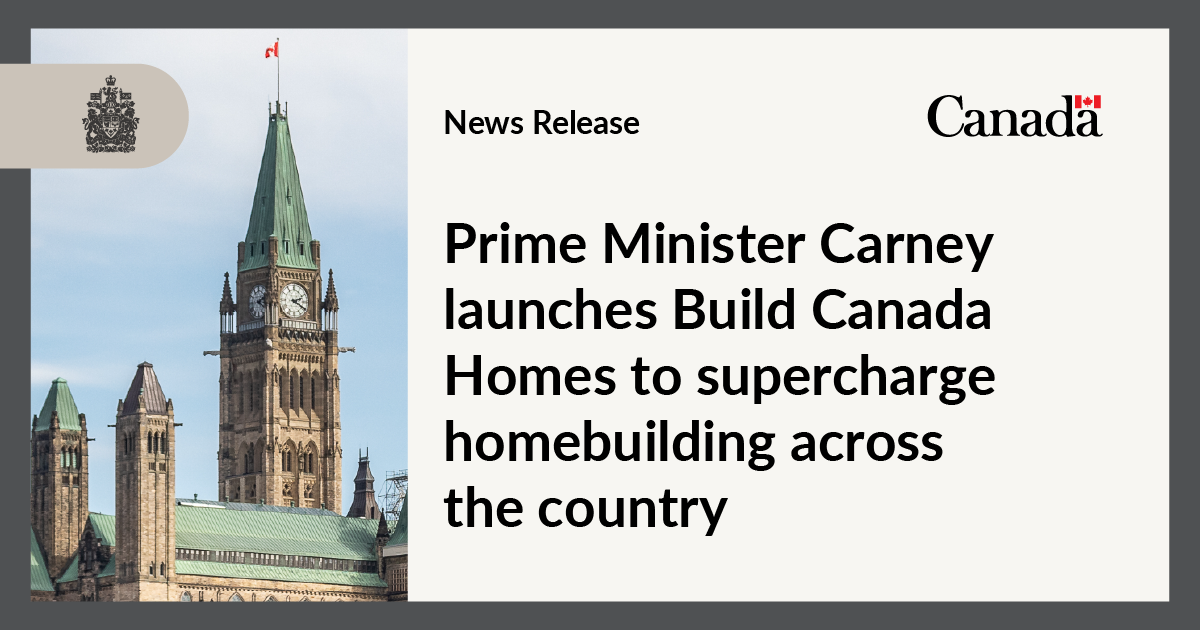Details on the initial investments form the PMO news release:
- - - - - - - - -
Build Canada Homes has a mandate to move quickly. To that end, the Prime Minister also announced its first four investments and initiatives:
- As Build Canada Homes begins to develop public land sites under Canada Lands Company’s portfolio, it will prioritize innovative, factory-built housing. To begin, Build Canada Homes will prioritize six sites to build 4,000 factory-built homes on federal land – with additional capacity of up to 45,000 units across the portfolio. In these projects, it will deploy a “direct-build” approach, overseeing and leading construction projects focused on affordable mixed-income communities. This first tranche of sites will be in Dartmouth, Longueuil, Ottawa, Toronto, Winnipeg, and Edmonton.
- To help protect existing affordable rental housing, the $1.5 billion Canada Rental Protection Fund will be launched under Build Canada Homes. This initiative will support the community housing sector in acquiring at-risk rental apartment buildings, ensuring they remain affordable over the long term. It also aligns with Build Canada Homes’ broader mandate to grow the supply of affordable and non-market housing – not only by building new homes, but also by preserving the ones on which Canadians already rely.
- Build Canada Homes will deploy $1 billion to build transitional and supportive housing for people who are homeless or at risk of homelessness. It will collaborate with key provincial, territorial, municipal, and Indigenous partners to pair these federal investments with employment and health care supports.
- Build Canada Homes will partner with the Nunavut Housing Corporation to build over 700 public, affordable, and supportive housing units. Approximately 30% of the units are expected to be built off-site, using innovative construction methods such as factory-built housing.
Today, the Prime Minister, Mark Carney, launched Build Canada Homes – a new federal agency that will build affordable housing at scale.

www.pm.gc.ca
- - - - - - - - -
Item 3 really jumps out at me: Transitional homes should have some positive feedback into some of the crime and disorder issues, as stable housing is a reasonably well established support for people escaping addition and unemployment. Supportive housing generally specifically targets helping people progressing out of complex issues including addiction.
So this is a multi-layered announcement that targets a few issues. Obviously the timing the day before Parliament resumes is not a coincidence.
EDIT TO ADD: Further thoughts, looks like a deliberate part of this strategy is to catalyze larger scale modular home construction and to get building happening year round. I don't know enough about building homes to gauge the importance of this but I gather everything slows right down in winter in most of the country.




